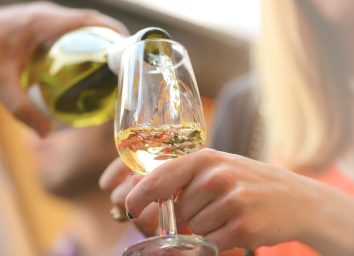12 Disturbing Effects of Drinking Alcohol You Should Never Ignore
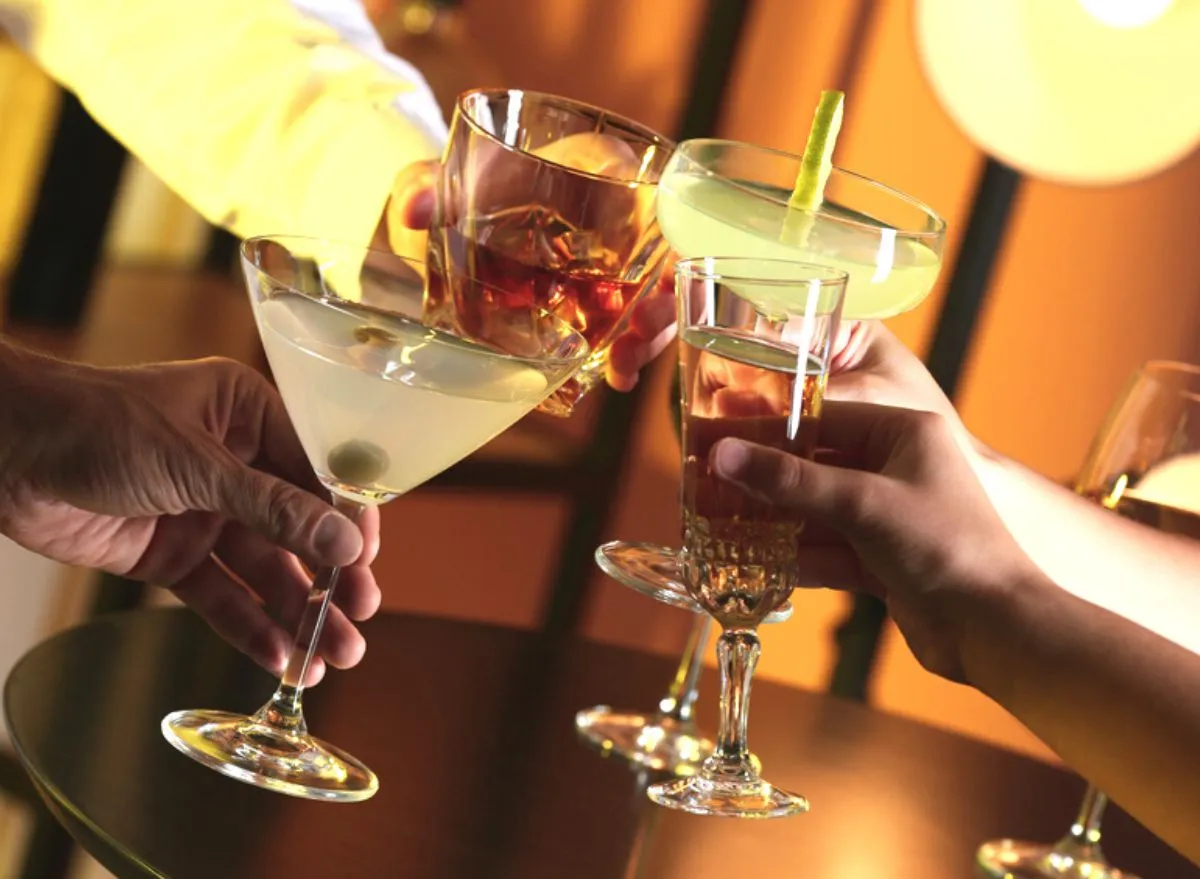
Saying and doing stupid things, running your car into a ditch (or worse), getting a DUI, regrettable Tweets and texts, painful dance moves, hangovers.
Those are just a few of the common ugly side effects of drinking alcohol of which you're aware, maybe even from personal experience. We can go on: weight gain, substance abuse, belly fat, etc. But science points to many others that may surprise you.
This round's on us. And for more on all things booze, don't miss out on these Side Effects of Giving Up Alcohol, According to Science. Plus, if you're looking for more healthy tips, check out Eating Habits to Lose Abdominal Fat As You Age, Say Dietitians.
Beer Goggles
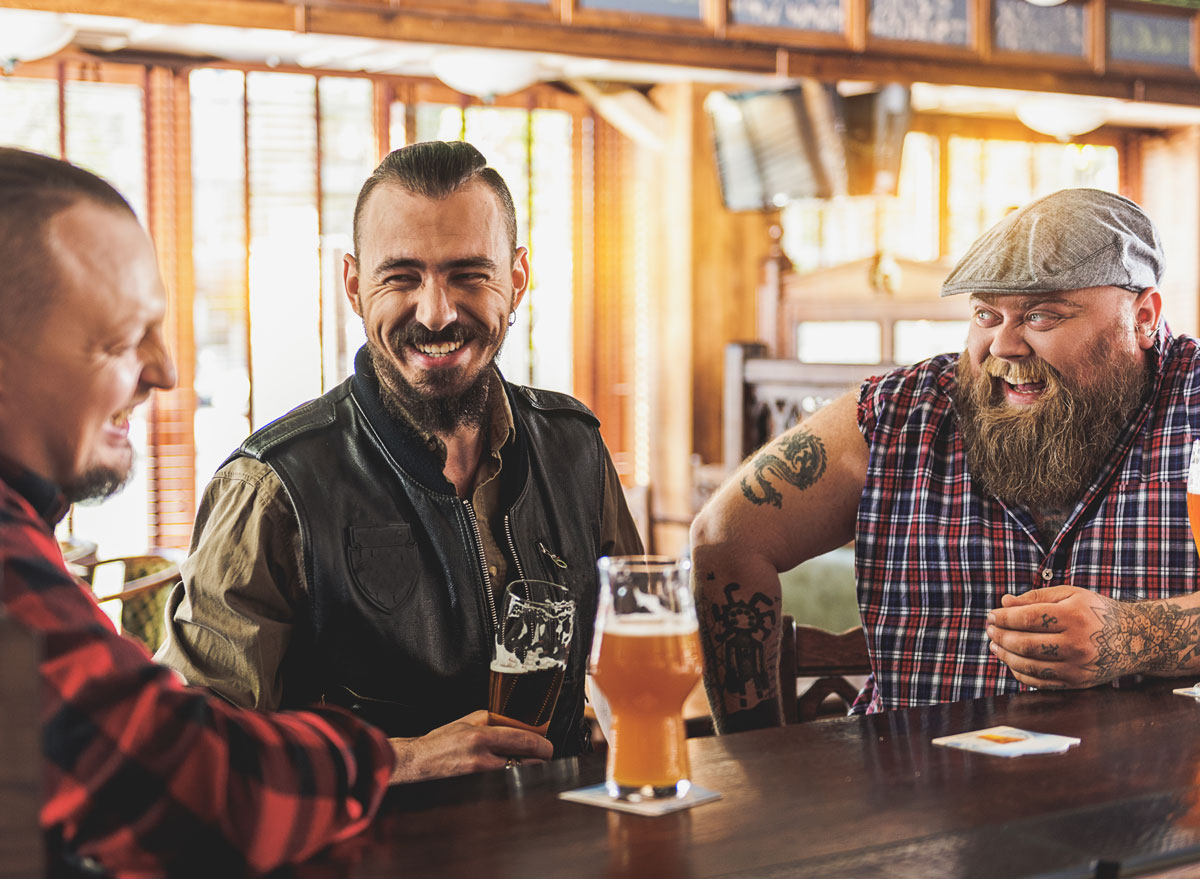
Beer goggles is a real thing, research says. At least there's some truth to the idea that a few drinks can make your fellow bar patrons more attractive to you, according to psychologists from England's Edge Hill University reporting in the journal Psychology of Addictive Behaviors. The researchers visited local pubs and asked 129 heterosexual patrons—men and women, both sober and mildly intoxicated—to take a computer-based test. The participants were instructed to indicate if the letter "T" was shown correctly or inverted while being told to ignore any unattractive faces that were displayed as a distraction at the same time. It turned out that the sober subjects found only the attractive faces distracting while the intoxicated participants found attractive and unattractive faces equally distracting. The psychologists concluded that alcohol "dampens the attentional biases toward attractive faces." In other words, people may view a wider field of acceptable mates as the drinks go down and the "beer goggles" go on.
Nocturnal Enuresis
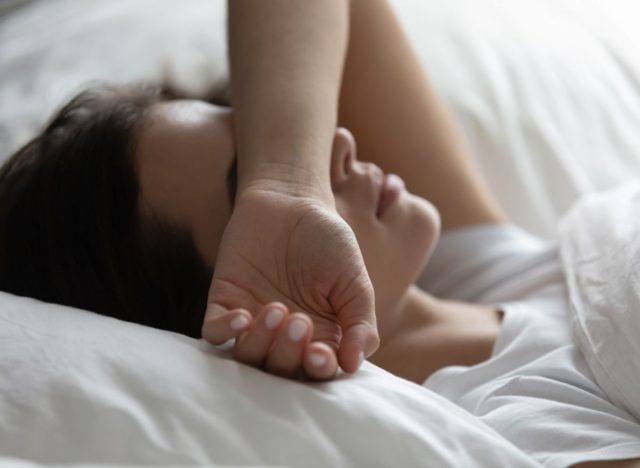
It sounds scientific, but you're likely already familiar with nocturnal enuresis, more commonly referred to as bedwetting. A full bladder can work like a nagging alarm on your smartphone, forcing you to get up to pee. But you can ignore your body's "I gotta go" signals, especially when you've had too much to drink. Alcohol suppresses an antidiuretic hormone that prompts your kidneys to conserve water so, when you drink, your body makes more urine. Booze also irritates the bladder, according to the National Continence Association. Say you had a rum and Coke; both alcohol and caffeine are known to trigger the detrusor muscle in the bladder to contract, triggering you to pee even before your bladder is full. The end result may be wet jammies if your alcohol-induced "coma" is stronger than your desire to get up and go to the bathroom.
Hives, Sneezing, Wheezing, Stuffy Nose
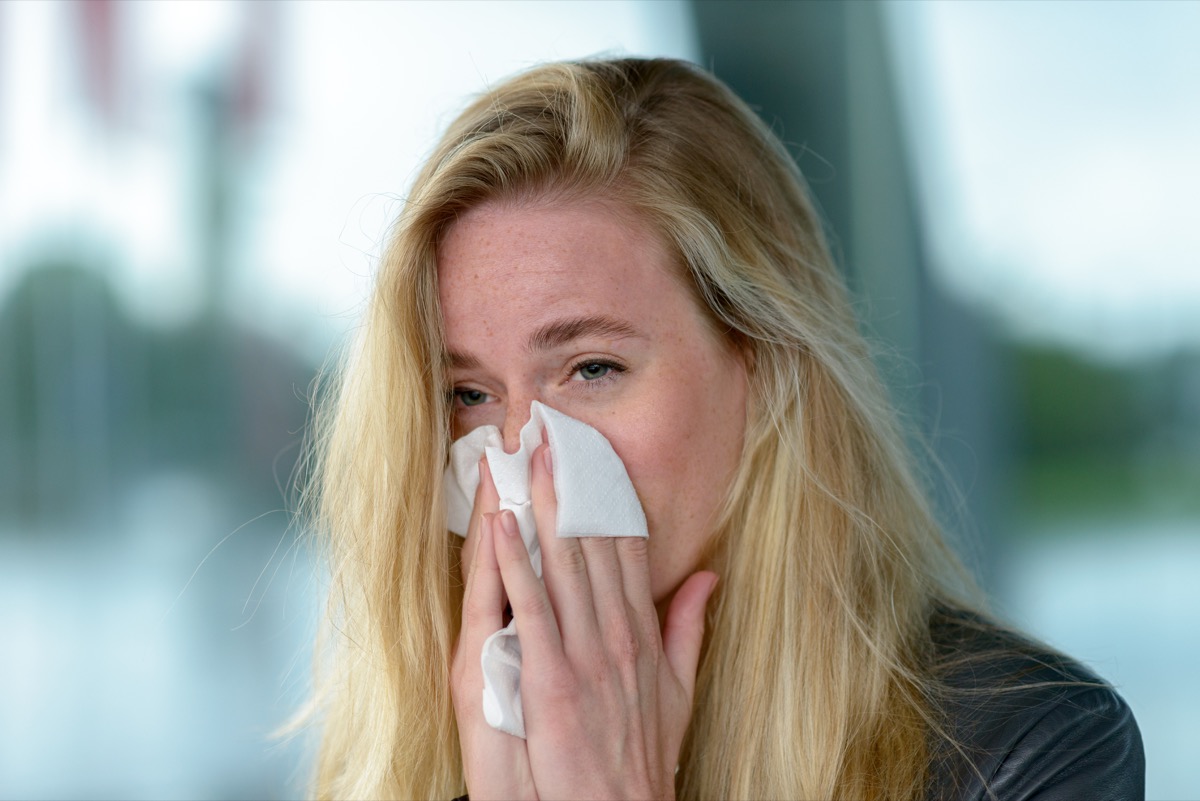
While you can be allergic to beer, most people simply have a sensitivity to some of the ingredients in it. "The most common reactions to beer are to types of grains, modified grain proteins hops, yeast, molds or barleys," writes Cleveland Clinic physician Mark Rood, MD, in Health Essentials. "Sensitivities are also possible to the additives that are present in some beers, including sulfites, sodium benzoate, or tartrazine."
Sulfites, histamines, yeast, tannins, and egg whites (sometimes used as a filtering agent) are also common triggers of allergy- or asthma-like reactions, according to the American College of Allergy, Asthma & Immunology. In a survey in the German journal Deutsches Arzteblatt International, 8.9% of women and 5.2% of men reported intolerance and/or allergy-like symptoms after drinking wine. The most common symptoms included flushing, itching, and nasal congestion.
Beer Potomania
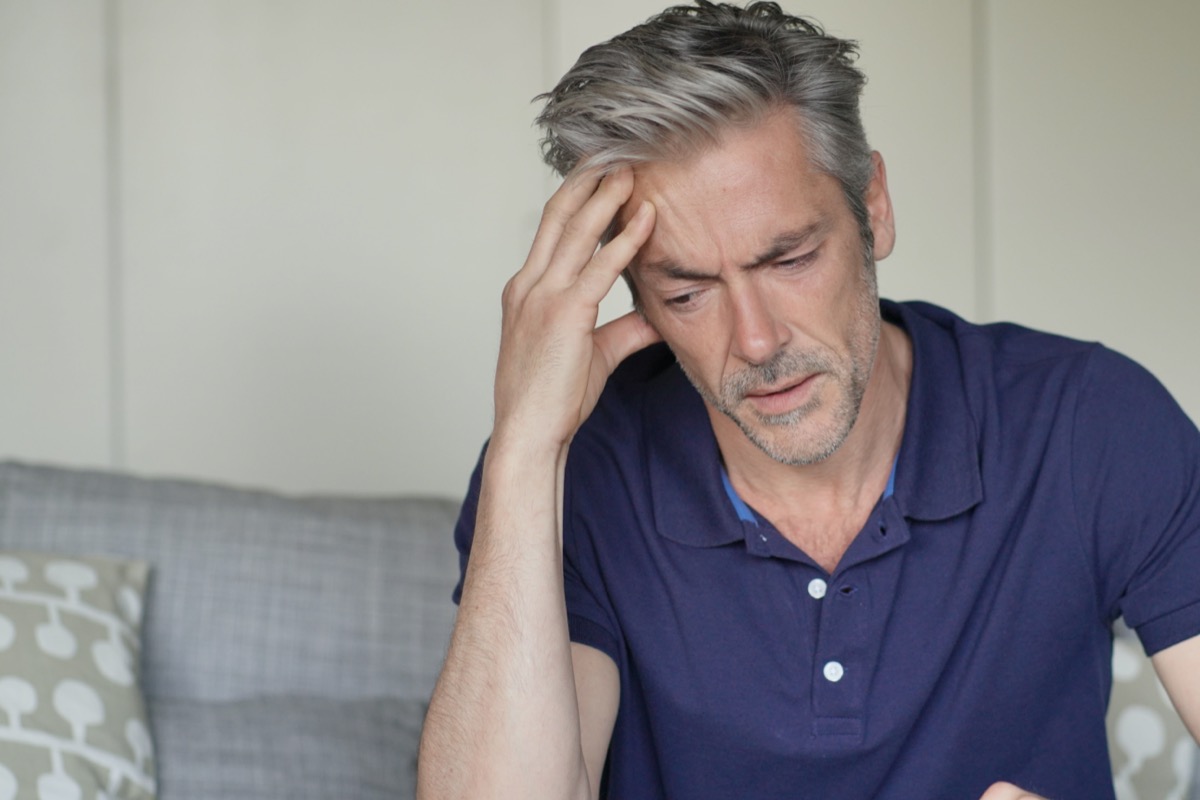
This is a serious condition brought on by a high intake of alcohol, primarily beer (five or more cans per day), and a poor diet. It's a type of hyponatremia occurring when the concentration of sodium in the blood is abnormally low, according to case studies in the open-access medical journal Cureus. Sodium is a critical electrolyte that helps regulate the amount of water in and around your cells. It's often very low in hospitalized patients with a history of alcoholism. Symptoms of "Beer Potomania" include confusion, fatigue, headache, nausea, and muscle weakness.
Disrupted Deep Sleep
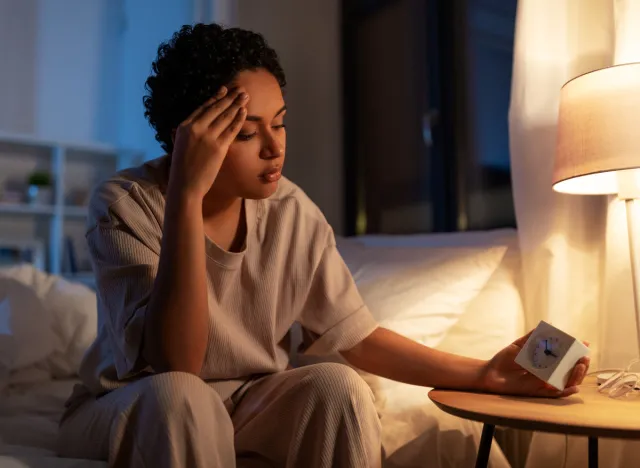
You might think a nightcap of good cognac might help you nod off—and it just might—but you can pay for it in the wee hours. Alcohol, even just one drink late at night, can disrupt deep sleep, the most rejuvenating stage that occurs in the final stage of non-REM sleep. A large Finnish study of more than 4,000 people published in JMIR Mental Health found that moderate alcohol consumption (two drinks per day for men and one for women) decreased sleep quality by 24%, while men and women who drank heavily (more than two a day for men and more than one for women) experienced a 39.2% reduction in sleep quality. Alcohol is a short-acting sedative, meaning two to three hours after blood alcohol concentrations fall close to zero, a rebound occurs, and arousal is spurred. Since it takes about an hour for the body to metabolize one glass of wine or liquor, if you have a few late at night, your deep sleep will be disrupted just when you need it most. The takeaway: stop drinking alcohol at least four hours before bedtime, suggests a 2009 review of studies in Substance Abuse. For more tips on getting a better night of sleep, check out 7 Healthy Diet Changes That Help You Sleep.
A Red Nose
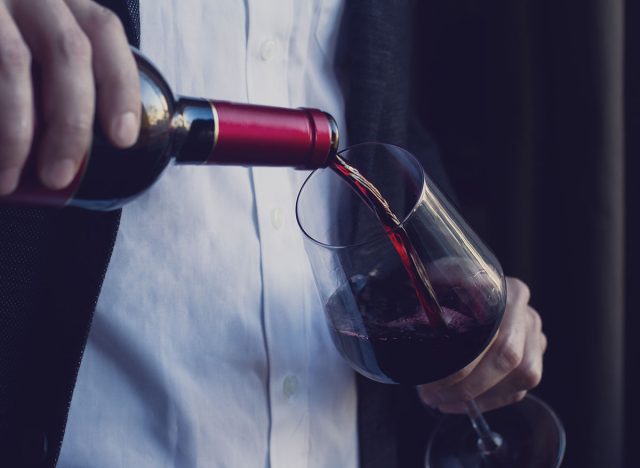
Alcohol dilates blood vessels in the face and especially the nose, aggravating a condition known as rosacea in some people. But heavy drinking doesn't cause the so-called "alcoholic's red nose," the enlarged, bulbous rosacea subtype. Even teetotalers can have rosacea, says the National Rosacea Society. But many rosacea sufferers note that alcohol, red wine, in particular, exacerbates flare-ups. Red wine contains histamine-like compounds called tyramine, a known vasodilator. In a survey of 700 patients by the National Rosacea Society, 76% reported skin reactions after drinking red wine. Beer triggered red noses in 41% of respondents; Scotch elicited the fewest flare-ups, 21%. At least some good can come of red wine, however, these are 12 Surprising Health Benefits of Red Wine.
Reduced Shivering, Lower Body Temperature
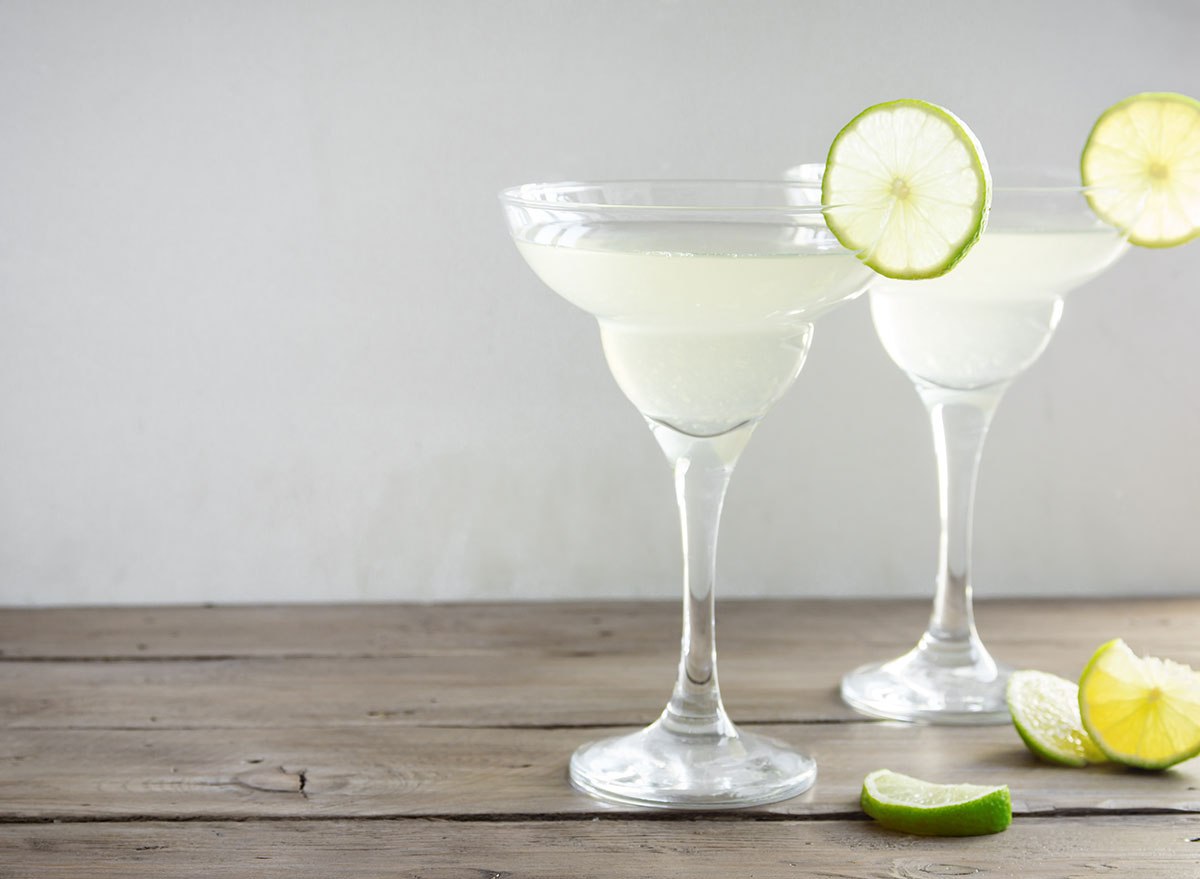
Taking a nip of brandy from a flask while skiing may warm your cold alpine soul, but it doesn't last long. As we've learned above, alcohol is a vasodilator, boosting the volume of blood in the capillaries under the surface of your skin. That creates the sensation of warmth while your core temperature may actually be lowering, which could be dangerous if you don't realize how cold your body is becoming. In addition, drinking alcohol can reduce your body's ability to shiver, its naturally warming response to cold temperatures, according to a study by the Army Research Institute of Environmental Medicine published in the Journal of Wilderness Medicine.
Diarrhea
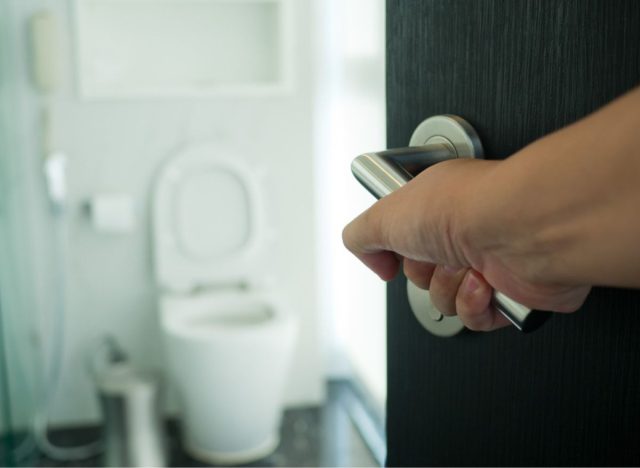
Alcohol can be thought of as a poison, and it can trigger a host of changes to your digestive system that may lead to a sprint to the nearest toilet. Here's how: according to a report in Addiction Biology, alcohol is inflammatory. This means that drinking alcohol causes irritation to the gastrointestinal tract while disrupting the normal water-pulling function of the large intestine, which results in liquid stools. Alcohol also overaccelerates digestion and kills good gut bacteria, both of which can contribute to diarrhea in binge drinkers as well as chronic alcoholics. For more, see 25 Unhealthiest Habits for Your Digestion.
Anxiety and Depression
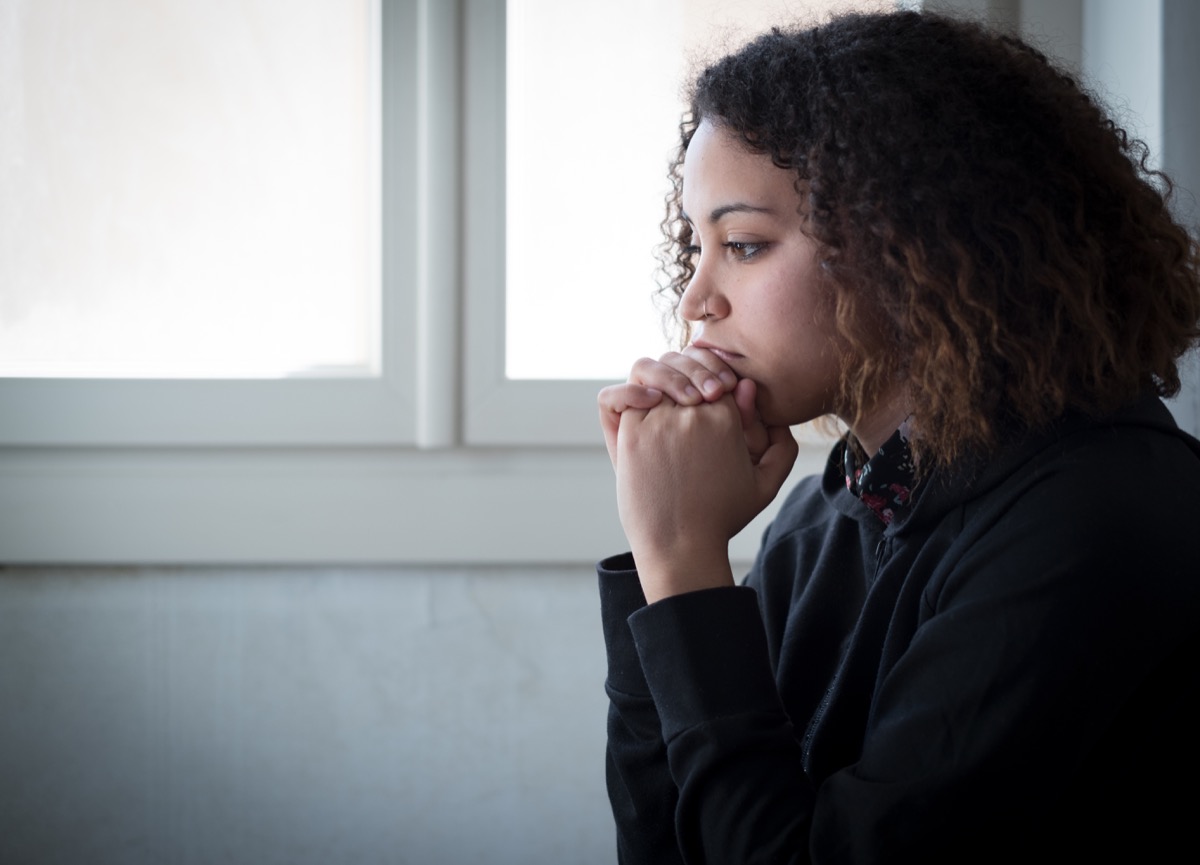
Not surprising, but worth highlighting: many studies show that mood disorders like anxiety and depression are the most common mental health problems that occur with alcohol use disorder. And when you suffer from both depression and alcoholism, the prognosis is worse than if you have either disorder alone.
Bad Breath

You're not fooling anyone with a shot of peppermint schnapps. A night of drinking can give you oral malodor—bad breath. A study in the Journal of Dental Research suggests alcohol intake and being overweight is associated with high volatile sulfide levels, a measure of bad breath.
Nightmares
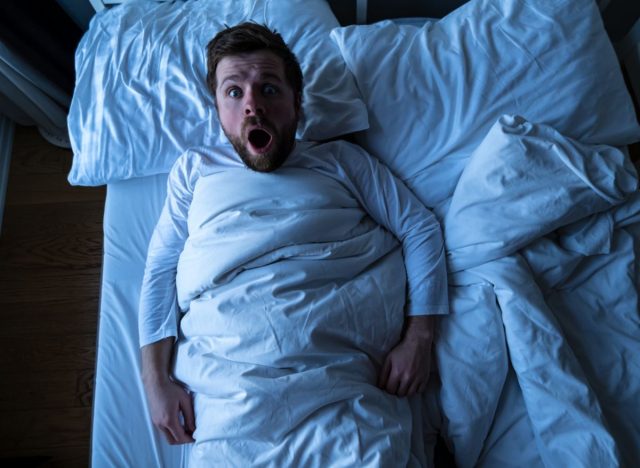
Bad dreams are common in alcohol-dependent patients during abstinence and withdrawal, according to a study in Alcohol and Alcoholism. Researchers surveyed a group of alcoholics and a group of healthy people about their sleep and dream experiences over four weeks while the drinkers were abstaining from alcohol. Results showed that the alcoholics experienced impaired sleep quality and their dreams tended to be more negatively toned than those of the healthy subjects. A common theme in the dreams of the detoxifying alcoholics: Alcohol.
Cravings for Greasy Hamburgers.
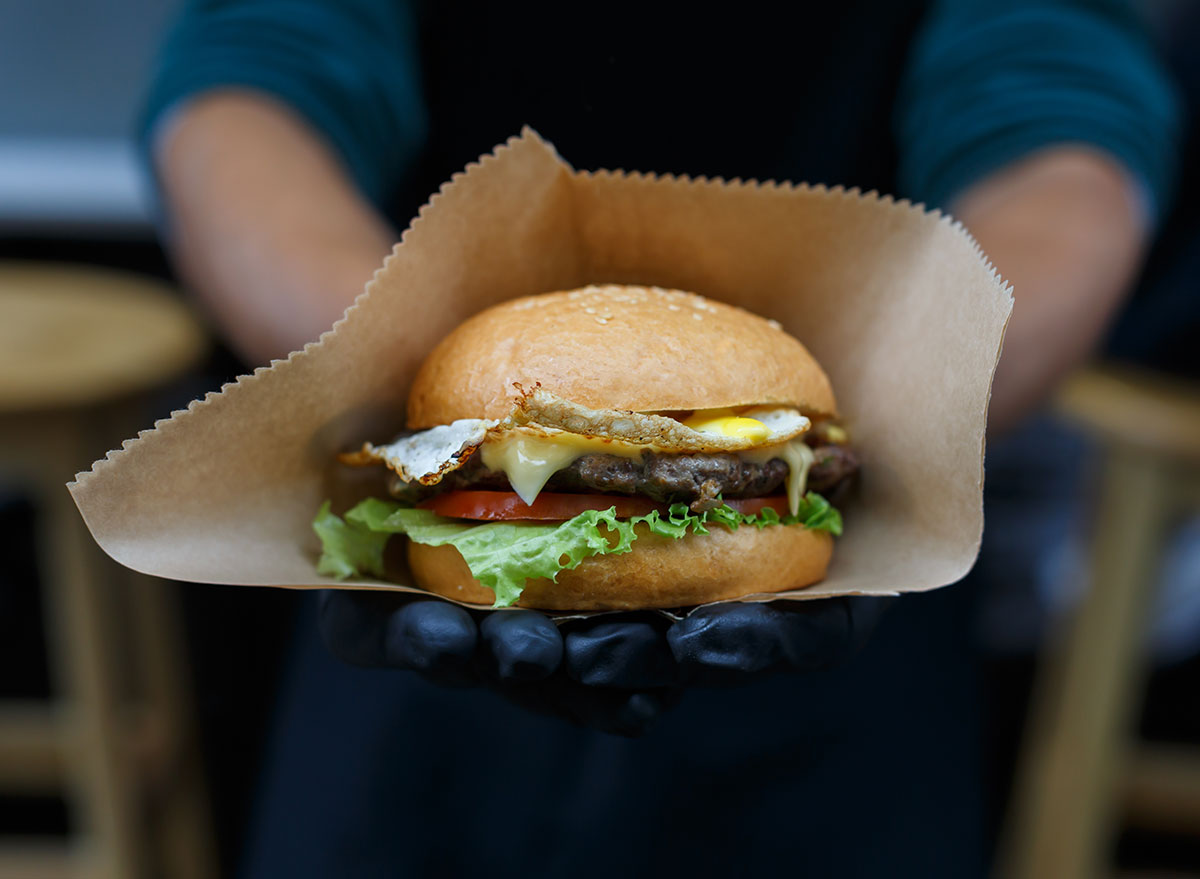
OK, no surprise here. You are well aware that a few drinks can make you crave McDonald's, wolf down a bag of Doritos, or order pizza at midnight. Cocktails, or more specifically ethanol, the active ingredient in them, stimulate appetite. It's why the saucy French invented the aperitif. But how does drinking trigger overeating? Researchers reporting in Nature Communications conducted a rodent study in which they injected ethanol into mice for three days and observed a marked increase in their food consumption. In addition, they found that ethanol caused electrical and biochemical hyperactivity in neurons in the hypothalamus that are normally activated during intense hunger. In other words, drinking alcohol tricks your brain's feeding circuits into thinking you are starving. So, too, can these 25 Foods That Make You Hungrier.

